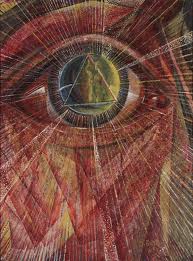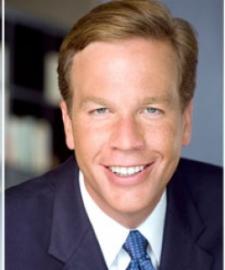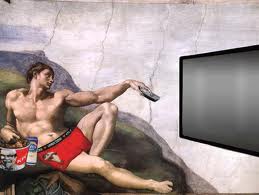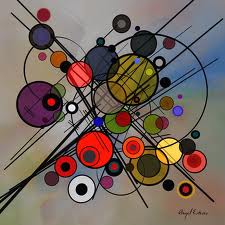Excerpts from as well as Articles & Dialogues on Published & Forthcoming Books
Daily Wisdom: I NEED YOU

The key gift the lover gives to the beloved is to need the beloved. And the converse. The gift of the beloved to the lover is to allow herself to need her lover. And of course the roles of lover and beloved are forever interchanging between the partners. This is the great gift of love for it fills the most basic and essential need of the human being; the need to be needed.
It is in being needed that we realize our humanity. In being needed by God we disclose our divinity as well. There is no more ultimate need than to be needed by God. There is no more ultimate human dignity than to need and be needed by God. What the mutuality of the covenant teaches us is that our need of him is but an echo, a reflection of his need of us. The great goal of spiritual work is turn God’s need – not into a merely human obligation – but into a genuine human need. In doing so the human paradoxically begins to realize his divinity.
Dr. Marc Gafni
The Dance of Tears
(page 379, in press)

 A second source of authority for the Bible is spoken of best by that greatly afflicted mythical figure, Job. Job tells us, “Through my flesh I vision God.” (Or, as nineteenth-century poet John Keats reformulated Job’s insight, “I am certain of nothing but of the holiness of the Heart’s affections and the truth of Imagination.”) For the mystical reader of biblical myth, to “vision God” is to understand being, for God and being are one.
A second source of authority for the Bible is spoken of best by that greatly afflicted mythical figure, Job. Job tells us, “Through my flesh I vision God.” (Or, as nineteenth-century poet John Keats reformulated Job’s insight, “I am certain of nothing but of the holiness of the Heart’s affections and the truth of Imagination.”) For the mystical reader of biblical myth, to “vision God” is to understand being, for God and being are one. Dave Logan and Dr. MarcGafni are mashing their heads and hearts together for the first “Meta Mashup” call of 2013. Hosted by Dave Logan, the title of the dialogue is “Unique Self and the Dark Side of Leadership.”
Dave Logan and Dr. MarcGafni are mashing their heads and hearts together for the first “Meta Mashup” call of 2013. Hosted by Dave Logan, the title of the dialogue is “Unique Self and the Dark Side of Leadership.” Prayer in its Original Face is also a fellowhip between God and man. God meets us as our friend in prayer.
Prayer in its Original Face is also a fellowhip between God and man. God meets us as our friend in prayer. If we come to understand that ethics is an erotic expression of our deeper divinity, we are truly moved to the ethical. For at that point we realize that it is an expression of our deepest selves, a response to the call of our own voice. Ethics, to be compelling and powerful, must be an expression of your erotic divine nature and not a contradiction to it. So when the prophet insists that God and the God within you is beyond nature, and can therefore act ethically against nature, they are referring only to your first nature, not to your deeper second nature. Your deeper nature is God.
If we come to understand that ethics is an erotic expression of our deeper divinity, we are truly moved to the ethical. For at that point we realize that it is an expression of our deepest selves, a response to the call of our own voice. Ethics, to be compelling and powerful, must be an expression of your erotic divine nature and not a contradiction to it. So when the prophet insists that God and the God within you is beyond nature, and can therefore act ethically against nature, they are referring only to your first nature, not to your deeper second nature. Your deeper nature is God. By Marc Gafni
By Marc Gafni By
By  We long for something deeper; something more, a higher and more noble authenticity. We masquerade in the mask of our wholeness knowing all along that it is but a charade; that we are part of larger whole with whom we yearn to be re-united. A shard of a shattered vessel whose hidden sparks seek to be uplifted and absorbed into the one even as they retain their sacred separate identity. “As the gazelle yearns after the stream of clear water, so does my soul long after you, my God.”
We long for something deeper; something more, a higher and more noble authenticity. We masquerade in the mask of our wholeness knowing all along that it is but a charade; that we are part of larger whole with whom we yearn to be re-united. A shard of a shattered vessel whose hidden sparks seek to be uplifted and absorbed into the one even as they retain their sacred separate identity. “As the gazelle yearns after the stream of clear water, so does my soul long after you, my God.”  By
By  From
From  The unfolding of divine consciousness is not a purely intra-divine process. The great privilege of being a human being is that we participate in the evolution and healing of God. We are God’s healers. It is the evolution of the human spirit that catalyzes the evolution of God. When God and man meet in an evolutionary embrace redemption is achieved.
The unfolding of divine consciousness is not a purely intra-divine process. The great privilege of being a human being is that we participate in the evolution and healing of God. We are God’s healers. It is the evolution of the human spirit that catalyzes the evolution of God. When God and man meet in an evolutionary embrace redemption is achieved.
 The vulgar world is already shouting, and with such a raucous rancor that truer voices can scarcely be heard at all. The materialistic world is already full of advertisements and allure, screams of enticement and cries of commerce, wails of welcome and whoops of come hither. I don’t mean to be harsh here, and we must honor all lesser engagements. Nonetheless, you must have noticed that the word “soul” is now the hottest item in the title of book sales–but all “soul” really means, in most of these books, is simply the ego in drag. “Soul” has come to denote, in this feeding frenzy of translative grasping, not that which is timeless in you but that which most loudly thrashes around in time, and thus “care of the soul” incomprehensibly means nothing much more than focusing intensely on your ardently separate self. Likewise, “Spiritual” is on everybody’s lips, but usually all it really means is any intense egoic feeling, just as “Heart” has come to mean any sincere sentiment of the self-contraction.
The vulgar world is already shouting, and with such a raucous rancor that truer voices can scarcely be heard at all. The materialistic world is already full of advertisements and allure, screams of enticement and cries of commerce, wails of welcome and whoops of come hither. I don’t mean to be harsh here, and we must honor all lesser engagements. Nonetheless, you must have noticed that the word “soul” is now the hottest item in the title of book sales–but all “soul” really means, in most of these books, is simply the ego in drag. “Soul” has come to denote, in this feeding frenzy of translative grasping, not that which is timeless in you but that which most loudly thrashes around in time, and thus “care of the soul” incomprehensibly means nothing much more than focusing intensely on your ardently separate self. Likewise, “Spiritual” is on everybody’s lips, but usually all it really means is any intense egoic feeling, just as “Heart” has come to mean any sincere sentiment of the self-contraction.
 Suddenly, in the chair beside him, Nietzsche took off his spectacles, buried his face in his handkerchief, and burst into sobs.
Suddenly, in the chair beside him, Nietzsche took off his spectacles, buried his face in his handkerchief, and burst into sobs.
 And therefore, all of those for whom authentic transformation has deeply unseated their souls must, I believe, wrestle with the profound moral obligation to shout from the heart–perhaps quietly and gently, with tears of reluctance; perhaps with fierce fire and angry wisdom; perhaps with slow and careful analysis; perhaps by unshakeable public example–but authenticity always carries a demand and duty: you must speak out, to the best of your ability, and shake the spiritual tree, and shine your headlights into the eyes of the complacement. You must let that radical realization rumble through your veins and rattle those around you.
And therefore, all of those for whom authentic transformation has deeply unseated their souls must, I believe, wrestle with the profound moral obligation to shout from the heart–perhaps quietly and gently, with tears of reluctance; perhaps with fierce fire and angry wisdom; perhaps with slow and careful analysis; perhaps by unshakeable public example–but authenticity always carries a demand and duty: you must speak out, to the best of your ability, and shake the spiritual tree, and shine your headlights into the eyes of the complacement. You must let that radical realization rumble through your veins and rattle those around you.